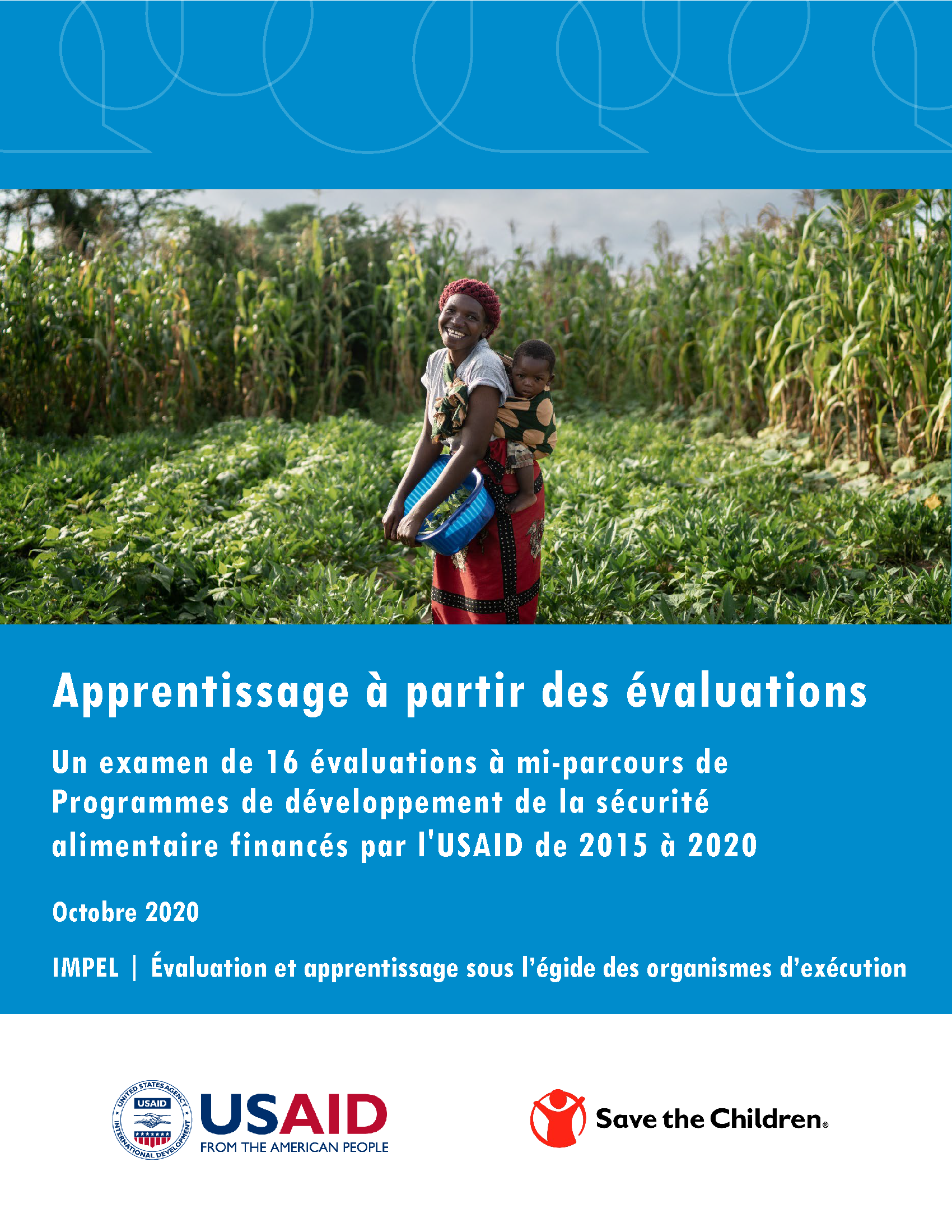Search Results

Apprentissage à partir des évaluations: Un examen de 16 évaluations à mi-parcours de Programmes de développement de la sécurité alimentaire financés par l'USAID de 2015 à 2020
Authors:
IMPEL
Sector Type:
Monitoring and Evaluation |
Program Design and Management
Year Published:
2020